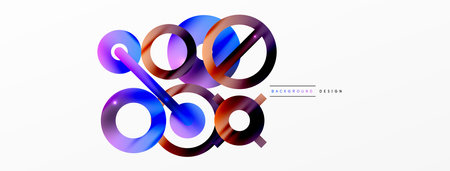Introduction to British Pop Culture
British pop culture, with its unmistakable vibrancy and enduring influence, stands as a defining force in shaping both national identity and global trends. From the swinging sixties—marked by the meteoric rise of The Beatles and The Rolling Stones—to the contemporary resonance of British cinema and television, the United Kingdom has long been a crucible of creative innovation. Iconic music scenes, such as punk rock’s rebellious energy and Britpop’s cheeky optimism, have not only provided a soundtrack to the nation’s history but also reflected the evolving values and aspirations of British youth. Meanwhile, landmark films like those from the James Bond franchise and beloved television series such as “Doctor Who” or “The Great British Bake Off” have woven themselves into the fabric of everyday life, offering shared experiences that transcend generations. In tandem with these artistic movements, shifting youth trends—from Mods and Rockers to today’s digital natives—continue to propel British pop culture forward, blending tradition with fresh perspectives. It is within this dynamic cultural tapestry that the relationship between popular culture and modern spiritual practices—including the rise of spiritual apps—begins to unfold, revealing how collective identity and cultural phenomena inform new approaches to self-discovery and well-being.
2. Emergence of Spirituality in Modern Britain
In recent years, British society has witnessed a marked transformation in its approach to spirituality and wellbeing. What was once the province of niche groups or esoteric circles has now found resonance among the wider public. This shift is not merely a passing trend but represents a deeper re-evaluation of values and personal fulfilment among Britons. As traditional religious observance has declined, an increasing number of individuals are seeking meaning through alternative spiritual practices, holistic wellbeing, and mindfulness. The growing popularity of meditation, astrology, tarot readings, and energy healing speaks to this expanding interest.
Shifting Attitudes Towards Spirituality
The British have historically been known for their reserved nature and pragmatic outlook. However, there has been a noticeable softening towards more introspective and spiritual pursuits. With mental health becoming a national conversation, many people are turning to spiritual apps and digital platforms for guidance, self-reflection, and stress relief. These platforms often blend ancient wisdom with modern convenience, making it easier for users to integrate spiritual routines into daily life.
Mainstreaming of Alternative Practices
Once confined to countercultural movements or the fringes of society, practices such as crystal healing, breathwork, and astrological forecasting are increasingly visible in mainstream British culture. High street bookshops now dedicate entire sections to spirituality and self-help; wellness festivals attract thousands each year; celebrities openly discuss their own spiritual journeys on social media and television.
Key Indicators of the Spiritual Shift
| Aspect | Traditional Approach | Modern Trend |
|---|---|---|
| Religious Practice | Church attendance | Personalised spirituality |
| Mental Wellbeing | Clinical therapy focus | Holistic self-care & mindfulness apps |
| Cultural Expression | Niche subcultures | Mainstream pop culture influence |
This evolution reflects not just an openness to new ideas but also the adaptability of British culture in integrating global influences. The widespread acceptance of previously marginal beliefs owes much to the visibility given by British pop icons and media figures who champion these practices. As a result, spiritual apps now cater specifically to UK audiences, blending local sensibilities with universal themes of self-discovery and wellbeing.

3. Fusion of Pop Culture and Spirituality
Within the vibrant tapestry of British society, pop culture has long been a source of identity, humour, and collective memory. As spiritual app trends gain traction across the UK, it is evident that elements intrinsic to British pop culture—such as language, wit, and celebrity presence—are now deeply woven into these digital spiritual experiences. For instance, the distinctively British penchant for dry humour and irony can be found in the tone and messaging of many spiritual apps, making mindfulness tips or astrology readings feel both relatable and approachable rather than esoteric. Furthermore, the use of colloquial English and regionally specific slang helps these platforms resonate with local users, fostering a sense of belonging and familiarity.
Celebrity influence also plays a pivotal role in shaping how spirituality is perceived and practised within Britain. When well-known British figures endorse meditation apps or share their personal journeys with tarot or mindfulness on social media, it lends a sense of authenticity and accessibility that encourages wider participation. These personalities often bridge the gap between ancient spiritual practices and modern-day living, infusing them with the glamour and relatability that pop culture provides. As a result, spiritual apps are not only tools for introspection but also platforms where British cultural identity finds new forms of expression—where light-hearted banter sits comfortably alongside deeper philosophical musings.
This unique fusion ensures that spiritual trends in the UK do not merely mimic global patterns but instead reflect distinctly British sensibilities. Whether through humour-laced horoscopes or guided meditations voiced by beloved British actors, the intersection of pop culture and spirituality creates engaging, meaningful experiences that appeal to the nation’s characteristic blend of tradition and innovation.
4. App Design and British Aesthetics
When examining the spiritual app market in the UK, it becomes evident that British pop culture leaves a distinct mark on both the visual and functional aspects of these platforms. The influence of British tastes, cultural references, and graphic styles plays a significant role in shaping user experience. Many developers aim to create an environment that feels both familiar and comforting to a UK audience, blending traditional motifs with modern digital design.
Key Features Influenced by British Culture
Spirituality apps popular in Britain often draw from the nations rich heritage and contemporary sensibilities. For example, interface designs might incorporate elements reminiscent of classic British literature, such as subdued colour palettes inspired by the English countryside or subtle nods to Victorian ornamentation. Additionally, features are often tailored to reflect local customs—like including reminders for afternoon tea breaks within mindfulness routines or referencing British festivals and holidays in daily affirmations.
Table: Examples of British Cultural Elements in Spirituality Apps
| App Feature | British Influence | User Impact |
|---|---|---|
| Colour Palette | Earthy greens, muted blues, and soft greys reflecting the British landscape | Creates a calming, locally resonant atmosphere |
| Iconography | Motifs such as oak trees, foxes, or classic teacups | Elicits nostalgia and familiarity among UK users |
| Cultural References | Inclusion of British idioms, humour, and seasonal traditions | Enhances relatability and engagement |
| User Journey Flows | Integration of daily routines like ‘tea time’ mindfulness exercises | Makes spiritual practice feel part of everyday life |
British Graphic Styles in App Interfaces
The adoption of graphic styles associated with British pop culture—ranging from retro mod patterns to minimalist approaches seen in modern London art galleries—helps set UK-based spirituality apps apart. Typography choices may echo fonts seen on traditional pub signs or high street shops, reinforcing a sense of place and identity. These visual cues not only attract users seeking something authentically ‘local’, but also foster deeper emotional connections through shared cultural memory.
A Harmonious Blend of Heritage and Innovation
The most successful spirituality apps in the UK strike a careful balance between honouring tradition and embracing innovation. By weaving together the warmth of British aesthetic sensibilities with cutting-edge technology, these apps provide an experience that is at once timeless and modern—much like the very spirit of Britain itself.
5. Celebrity Influence and Social Media
Within the ever-evolving landscape of British pop culture, celebrities, influencers, and media personalities play a pivotal role in shaping trends, particularly when it comes to spiritual apps. In the UK, the endorsement or casual mention of an app by a beloved television host, a chart-topping musician, or a reality TV star can lend immense credibility and spark widespread curiosity among their followers. These well-known figures often share personal journeys involving mindfulness, astrology, or meditation apps on platforms such as Instagram and Twitter, weaving their experiences into the fabric of their public personas. This not only normalises the use of spiritual apps but also encourages audiences to explore these digital tools themselves.
British celebrities frequently set cultural agendas through their openness about mental wellness and spiritual exploration. When a familiar face from the world of football, music, or even daytime television discusses using a tarot-reading app to gain clarity before a big match or event, fans are likely to take notice. The influence extends further when these personalities interact with users online, fostering communities that revolve around shared experiences with specific apps. As a result, recommendations from trusted voices become powerful catalysts for both downloads and ongoing engagement.
The interconnectedness between British media outlets and social platforms further amplifies this phenomenon. Interviews with celebrities in prominent publications such as The Guardian or BBC Radio often include references to their favourite wellbeing apps, subtly reinforcing their legitimacy. Moreover, the rise of influencer culture means that micro-influencers—those with smaller yet highly engaged followings—can generate significant buzz within niche communities by sharing authentic reviews and testimonials.
In sum, the adoption of spiritual apps in the UK is not solely driven by technological innovation or global trends; it is deeply entwined with the fabric of British pop culture itself. The guidance and endorsement from household names imbue these digital tools with an added sense of trustworthiness and relatability, propelling them from mere novelty to essential companions in many Britons’ daily lives.
6. User Trends and Community Building
Within the United Kingdom, the intersection of pop culture and spirituality is distinctly reflected in the ways users engage with spiritual apps. British users often approach these digital platforms not merely as solitary tools for self-reflection, but as gateways into wider communities that resonate with shared values and interests. The communal aspect is particularly noteworthy: many UK-based users actively participate in discussion forums, group meditations, or event meet-ups facilitated through these apps. This inclination toward community echoes the longstanding British tradition of forming societies and clubs around mutual interests, a cultural trait evident from local book clubs to nationwide fandoms.
British pop cultures influence can also be observed in the specific interests that emerge within these app communities. For instance, there is a marked preference for astrology readings themed around iconic British figures or media, such as horoscopes inspired by popular TV shows like “Doctor Who” or music groups such as The Beatles. These references foster a sense of familiarity and belonging, making spiritual exploration feel accessible and relevant to everyday life.
Moreover, British humour and wit are often interwoven into online interactions, softening potentially heavy spiritual topics with lighthearted banter or clever memes. This not only makes participation more inviting but also reflects the national tendency to approach even profound matters with a measure of levity.
The manner in which UK users build and sustain these online communities is also shaped by the British appreciation for inclusivity and respectful dialogue. Discussions tend to remain measured, with an emphasis on listening and mutual support rather than overt evangelism. App developers catering to this audience frequently embed features that encourage moderation and positive reinforcement, ensuring that the communal spaces remain welcoming and safe.
Ultimately, the unique blend of British pop culture – from music to television to literature – infuses spiritual app communities with a distinct character. It enables users not only to explore personal meaning but also to connect with others who share both their spiritual curiosity and cultural heritage.
7. Conclusion: Future Outlook for Spiritual Apps in Britain
As we reflect upon the dynamic interplay between British pop culture and spiritual app trends, it becomes evident that the future of this digital landscape is both promising and ever-evolving. The British penchant for blending tradition with innovation has fostered a unique environment where spiritual practices are not only preserved but also adapted to meet contemporary needs. With the continued influence of cultural icons, music, and media, spiritual apps are poised to become even more personalised, interactive, and community-oriented.
Looking ahead, we can anticipate further integration of cutting-edge technology such as augmented reality and artificial intelligence within spiritual applications. These advancements will likely offer users immersive experiences—perhaps allowing them to virtually visit sacred sites or engage in guided meditations tailored precisely to their personal preferences. Additionally, as British society grows increasingly diverse and interconnected through digital means, spiritual apps may broaden their scope to embrace a wider range of cultural traditions and belief systems, reflecting the rich tapestry of modern Britain.
Moreover, ongoing shifts in pop culture—particularly those championed by younger generations—suggest that authenticity and inclusivity will remain at the forefront of spiritual app development. Community-driven features, peer support networks, and collaborative exploration of spirituality could become key elements, echoing the collective spirit often celebrated in British popular culture. Ultimately, as digital engagement deepens and societal attitudes towards spirituality continue to evolve, spiritual apps in the UK are well-positioned to serve as both guides and companions on the journey towards self-discovery and collective wellbeing.


